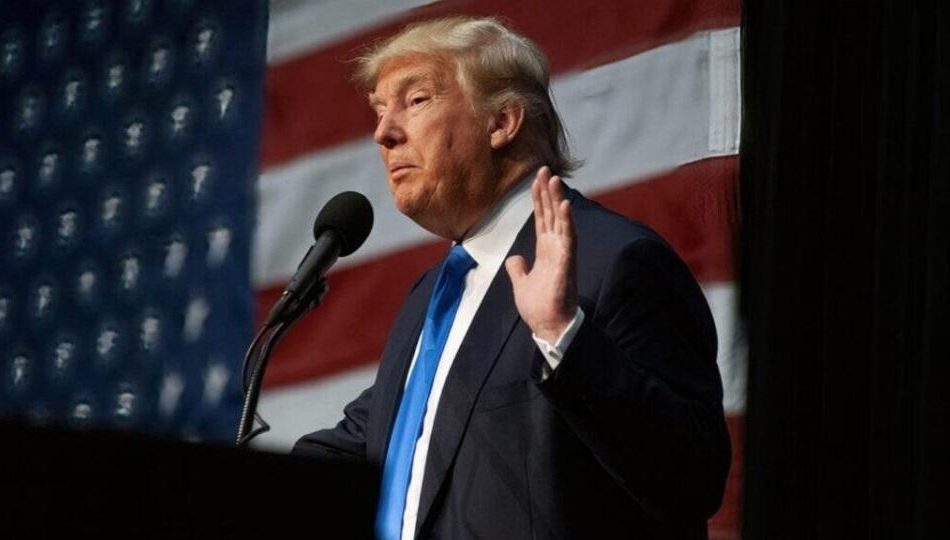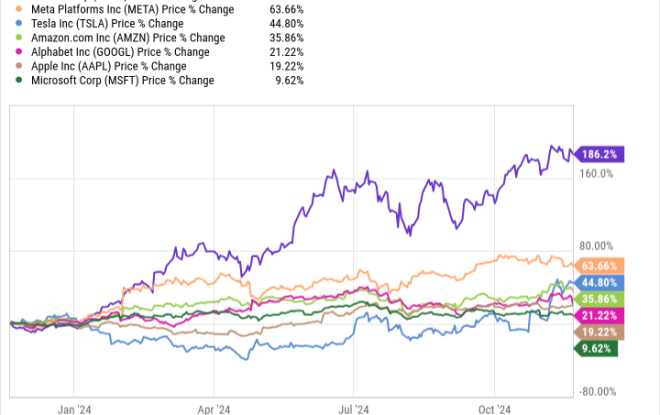Are Trump's Proposed Corporate Tax Cuts The Key To Unleashing A Stock Market Boom? Here's What History Tells Us About Similar Moves
Former President Donald Trump is again turning heads with his push to slash the federal corporate tax rate. The 2024 GOP presidential nominee proposes lowering it from 21% to 15%, which has stirred up much debate. Some see it as the key to supercharging the U.S. economy and stock market. Others, however, aren’t so sure.
Don’t Miss:
Supporters of Trump’s plan point to past economic gains when taxes were lowered. According to the Tax Foundation, dropping the corporate tax rate to 15% could boost the U.S. GDP by 0.4% and add roughly 93,000 full-time jobs.
This is music to the ears of those who believe that lower taxes will make the U.S. more attractive for business. A more competitive environment, they argue, could drive corporate growth, pump up earnings and ultimately benefit shareholders as stock prices climb.
Trending: ‘Scrolling to UBI’: Deloitte’s #1 fastest-growing software company allows users to earn money on their phones – invest today with $1,000 for just $0.25/share
Advocates also think this cut could push companies to funnel more money into share buybacks, further inflating stock prices. But the critics have their doubts. One big concern is the potential impact on federal revenues. As cited by CNN, Trump’s proposal could increase the national debt by between $1.5 trillion and $15.2 trillion.
Even when factoring in economic growth, the revenue loss would still be a whopping $460 billion. As the U.S. grapples with a rising federal deficit – already expected to hit 202.6% of GDP by 2065 – some worry that these tax cuts might tie the government’s hands when funding essential programs.
Trending: The global games market is projected to generate $272B by the end of the year — for $0.55/share, this VC-backed startup with a 7M+ userbase gives investors easy access to this asset market.
Another question in the air is whether corporate tax cuts reliably lead to stock market booms?
Trump significantly boosted Corporate America by lowering the corporate tax rate from 35% to 21%. This legislation, along with a strong economy, led to record-breaking corporate earnings. Many executives decided to reward shareholders rather than investing in growth or hiring.
See Also: This billion-dollar fund has invested in the next big real estate boom, here’s how you can join for $10.
Data from S&P Dow Jones Indices shows that companies within the S&P 500 repurchased a whopping $189 billion worth of stock in the first quarter alone. This figure shattered the previous record set in 2007. Tech giant Apple (AAPL) led the charge, setting a record by buying back $22.8 billion of its own shares – the largest stock buyback by any company in a quarter of U.S. history.
Vice President Kamala Harris, representing the Biden administration, has suggested raising the corporate tax rate to 28%. Wall Street is concerned that Harris’s tax plan could negatively impact U.S. corporate profits, with Yung-Yu Ma, chief investment officer of BMO U.S. Wealth Management, warning that higher taxes would likely result in lower corporate profits and reduced stock valuations. “Essentially, what you have is the likelihood of a significant pullback in the stock market due to higher taxes,” Ma stated.
Read Next:
UNLOCKED: 5 NEW TRADES EVERY WEEK. Click now to get top trade ideas daily, plus unlimited access to cutting-edge tools and strategies to gain an edge in the markets.
Get the latest stock analysis from Benzinga?
This article Are Trump’s Proposed Corporate Tax Cuts The Key To Unleashing A Stock Market Boom? Here’s What History Tells Us About Similar Moves originally appeared on Benzinga.com
© 2024 Benzinga.com. Benzinga does not provide investment advice. All rights reserved.





Leave a Reply